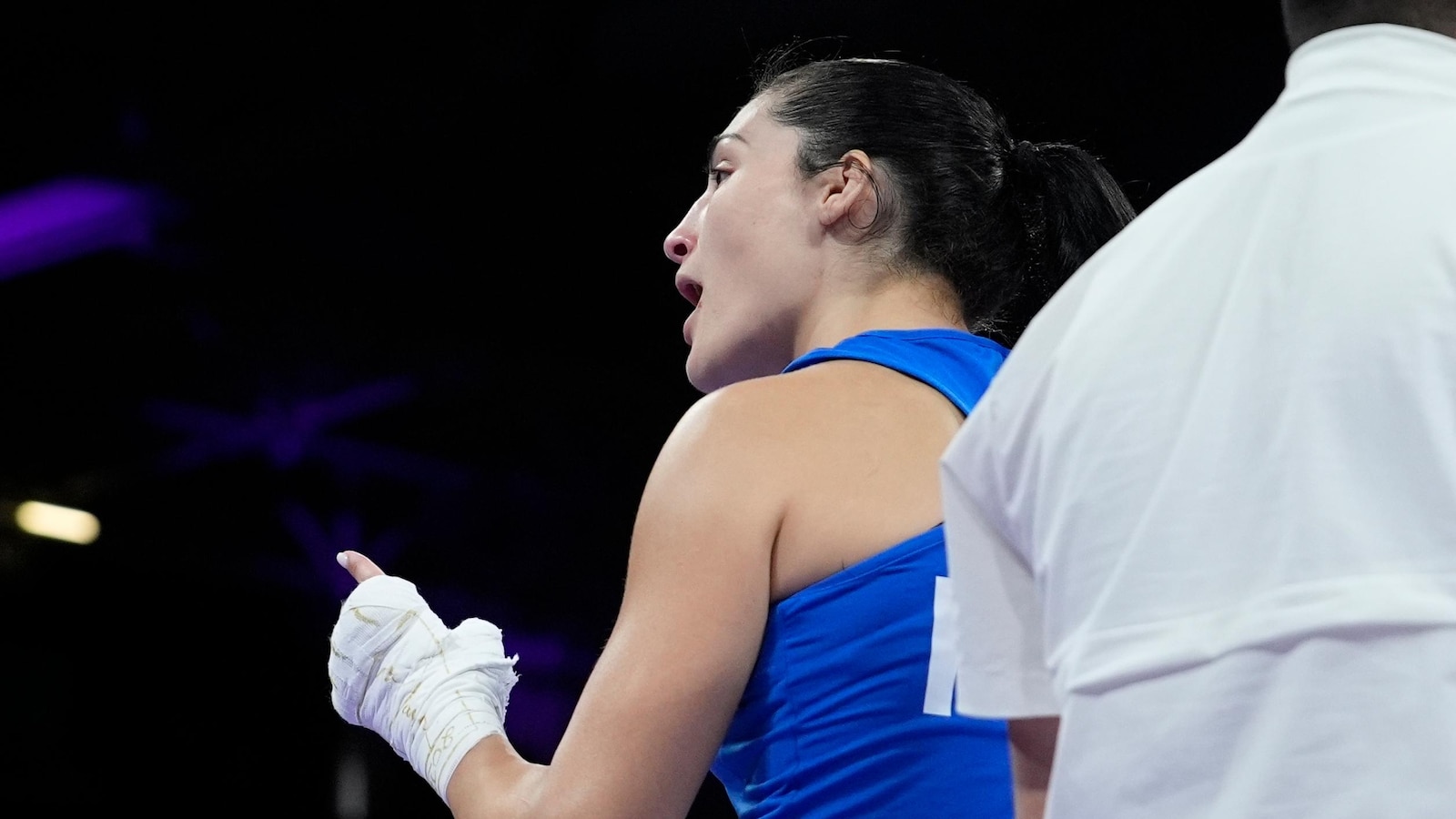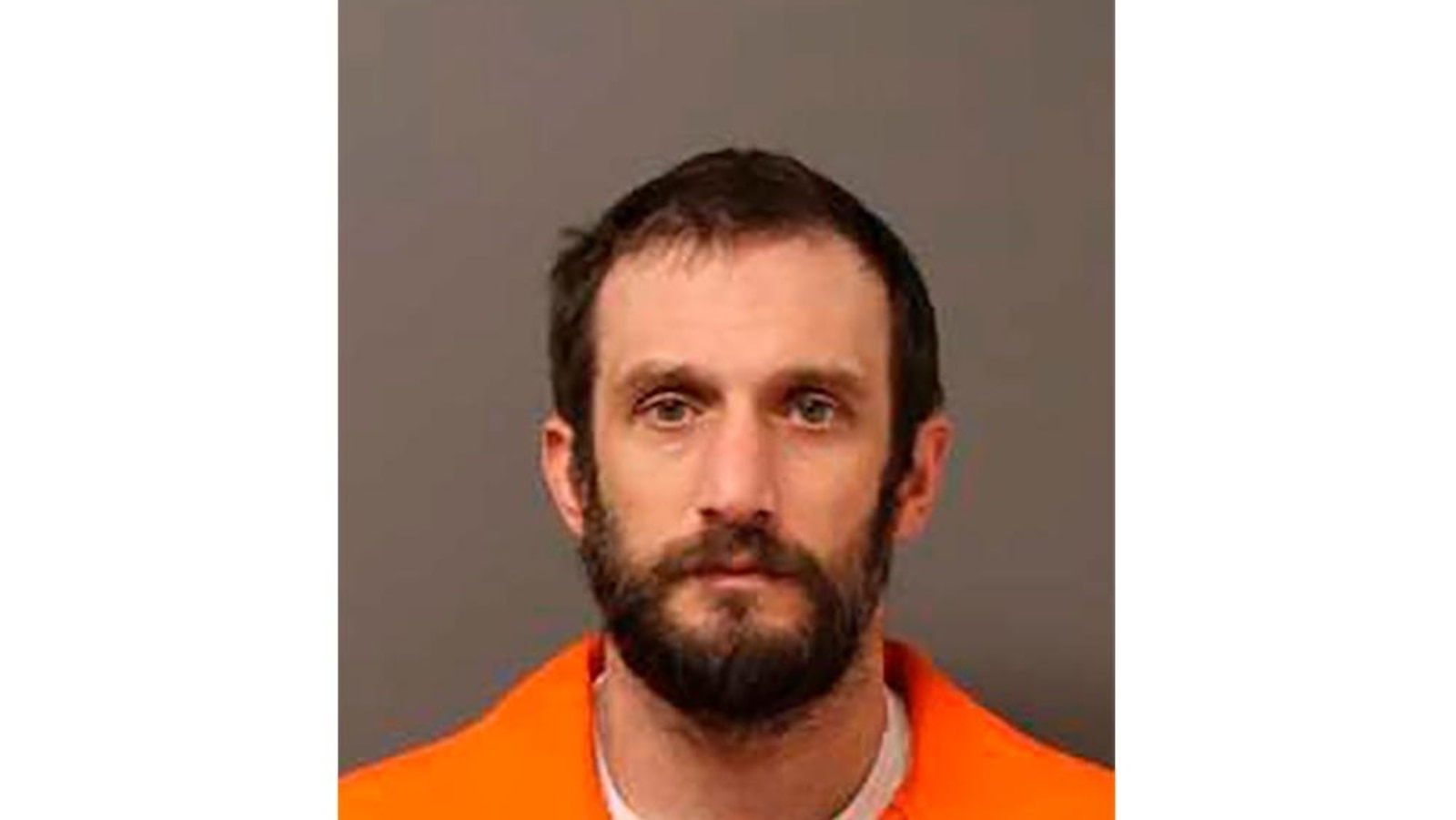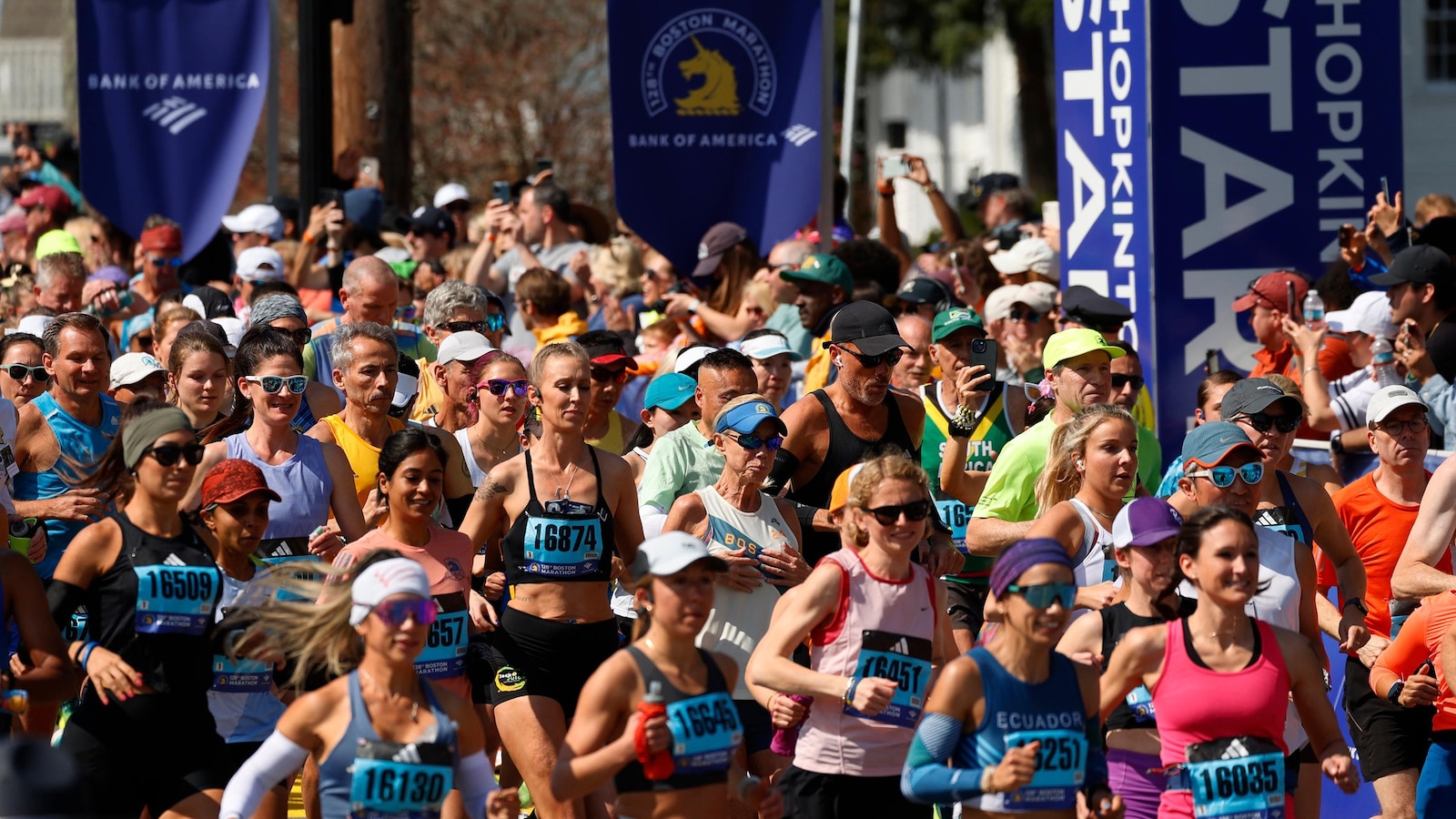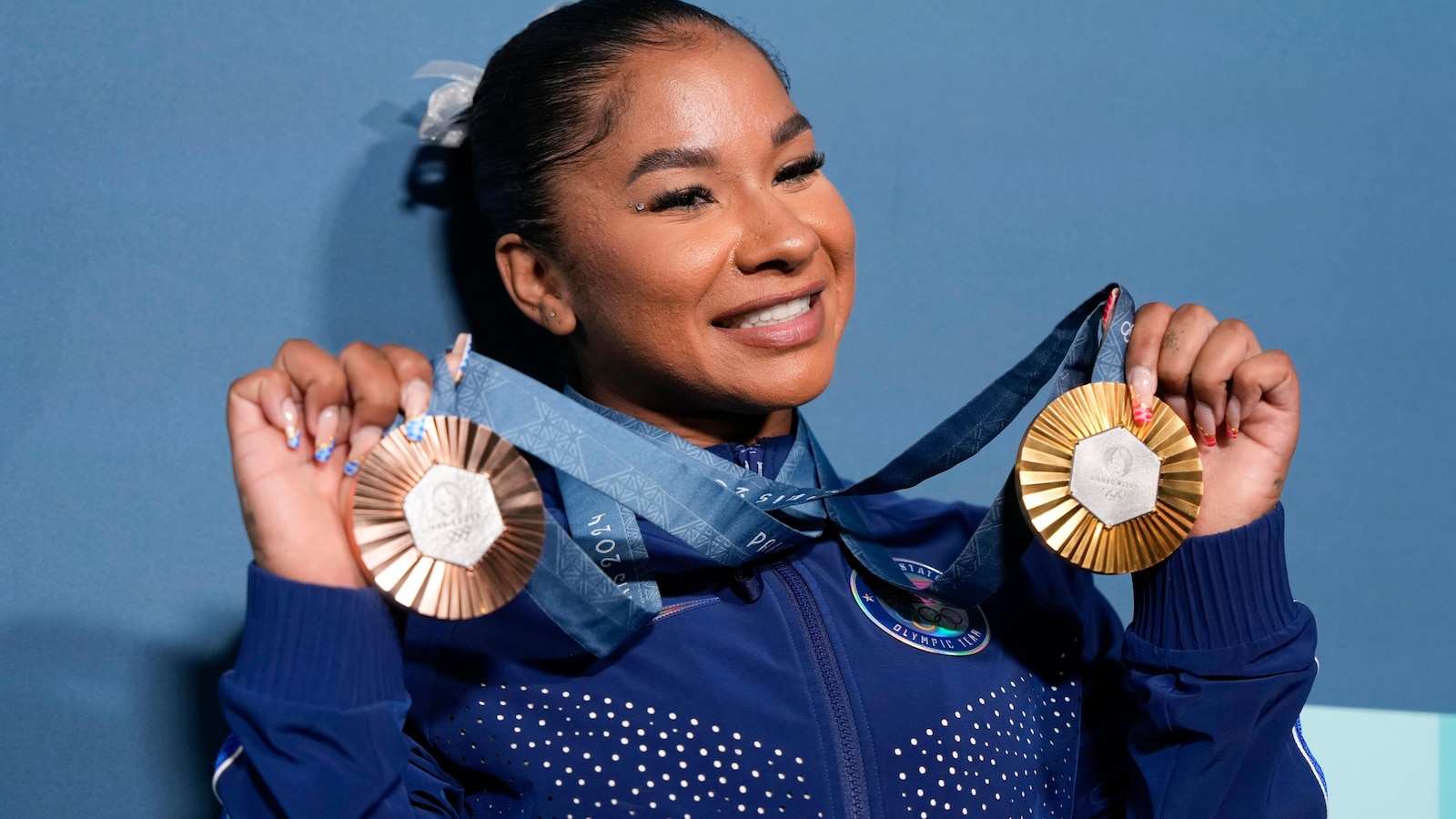
PARIS — LGBTQ+ athletes, officials and observers have warned that a deluge of hateful comments misidentifying a female boxer in the Paris Olympics as transgender or a man could pose dangers for the LGBTQ+ community and female athletes.
The concerns come as famous figures — from former U.S. President Donald Trump to “Harry Potter” author J.K. Rowling — have railed against Algerian boxer Imane Khelif after her Italian competitor Angela Carini quit their bout Thursday. They and other social media comments falsely claimed Khelif was a man fighting a woman.
The comments have rippled across social media, pulling Khelif and Taiwanese boxer Lin Yu-Ting into the larger social contention about women in sports.
The International Olympic Committee spokesperson Mark Adams said Friday that Khelif “was born female, was registered female, lived her life as a female, boxed as a female, has a female passport.”
He warned “not turn it into some kind of witch hunt.”
Some athletes and LGBTQ+ observers worry that hateful comments from critics — and the IOC failing to address a larger global conversation before the Olympics — have already started to vilify transgender, nonbinary and other LGBTQ+ people at an event championing inclusion. It comes as expanding interpretations of gender identity have spurred a larger political tug-of-war, often centered around sports.
While the Paris Olympics has pushed an agenda of openness and a record 193 openly LGBTQ+ athletes are competing, a performance by drag queens during the opening ceremony faced intense backlash from religious conservatives and others contending that it mocked the Leonardo da Vinci’s “Last Supper.” Some performers and the opening ceremony’s artistic director say they have received threats.
Nikki Hiltz, one of the world’s top middle-distance runners competing in the women’s category for the U.S. Olympic team, has faced such hateful comments first hand. Assigned female at birth, Hiltz identifies as nonbinary.
“Transphobia is going crazy at these Olympics,” Hiltz wrote on a post on Instagram responding to the boxing debate. “Anti-trans rhetoric is anti-woman. These people aren’t ‘protecting women’s sport,’ they are enforcing rigid gender norms, and anyone who doesn’t fit into those norms is targeted and vilified.”
The controversy is rooted in claims by the International Boxing Association that Khelif and Lin failed unspecified and untransparent eligibility tests for women’s competition, which the IOC called “a sudden and arbitrary decision” from a governing body it has banned from the Olympics since 2019.
While some sports have detailed guidelines about transgender athletes and hormone levels in competitions, boxing is relying on rules dating to the 2016 Olympics that say the threshold for eligibility is what appears on an athlete’s passport amid a larger rift between the IBA and the IOC.
“The current aggression against these two athletes is based entirely on this arbitrary decision (by the IBA), which was taken without any proper procedure,” said Adams of the IOC. “These dangerous, misogynistic and baseless attacks can lead to misinformation.”
Athletes have faced “quite a few cases of online aggression,” said Adams of the IOC. He said it is the responsibility of the Olympic body to “look after” the athletes and “make sure that they’re safe.”
Though some like Cyd Zeigler, co-founder of Outsports, a site that tracks LGBTQ+ participation in the Olympics, say failures by the IOC to provide clarity before the Games has hurt both female athletes and LGBTQ+ competitors, both of whom have long fought for recognition.
“The issue is not the athlete trying to compete, it’s whoever is making the policy,” Zeigler said. “The awful part of this is the vitriol over the last two days has been aimed at these athletes.”
Zeigler said the backlash is likely to stifle LGBTQ+ public participation in the Games in the future despite activists saying the Olympics have taken major strides in recent years.
“By trying to bury the issue they knew was coming, transphobic (people) begin to direct the conversation,” Zeigler said. “We can have conversations about the inclusion of trans athletes. There are thoughtful conversations to have. It is the vitriol, the nasty, horrible, graphic, ghastly language that gets used around this that eats at me.”
Former athletes like Belgium’s Charline Van Snick, 33, a former judo medalist in the 2012 Games, said the testing and comments about Khelif and Hamori’s bodies are undoing years of work by female athletes to push back against stigma.
While many say they have seen major progress in recent years, Ilona Maher, a star of the U.S. women’s rugby team, broke out in tears in a social media post before the Olympics following comments claiming she was a man.
“There are some women with more testosterone, or different kinds of body,” Van Snick said. “In judo, you are fighting, and you have to stay a woman, what is accepted of a woman. If you look too much like a man, they say, ‘Oh, she’s a man.’ But I’m a woman” who could beat a man in the sport.
——
Associated Press videojournalist Lujain Jo contributed from Paris.
In recent weeks, concerns have been growing over the potential backlash against LGBTQ+ and women athletes in the wake of negative comments made about female boxer Claressa Shields. The two-time Olympic gold medalist and undisputed middleweight champion has faced criticism from some in the boxing community for her outspoken nature and confident demeanor.
Shields, who is openly bisexual, has been a trailblazer for LGBTQ+ athletes in the traditionally male-dominated sport of boxing. However, her success and visibility have also made her a target for those who are uncomfortable with her sexuality and assertiveness.
The negative comments directed at Shields have raised concerns about the treatment of LGBTQ+ and women athletes in sports. Many fear that the backlash against Shields could discourage other LGBTQ+ athletes from coming out or speaking out about their identities. It also highlights the ongoing challenges that women athletes face in a sports world that is often hostile to their presence.
The issue of discrimination and harassment against LGBTQ+ and women athletes is not new. In recent years, there have been numerous instances of athletes facing backlash for their sexual orientation or gender identity. From derogatory comments to outright discrimination, LGBTQ+ and women athletes continue to face significant barriers in the world of sports.
It is important for sports organizations, fans, and athletes themselves to stand up against discrimination and support LGBTQ+ and women athletes. By creating a more inclusive and accepting environment, we can ensure that all athletes are able to compete and succeed on an equal playing field.
In the case of Claressa Shields, it is crucial that we rally behind her and show our support for her as she continues to break down barriers and pave the way for future generations of LGBTQ+ and women athletes. By standing up against hate and intolerance, we can create a more welcoming and inclusive sports community for all.


